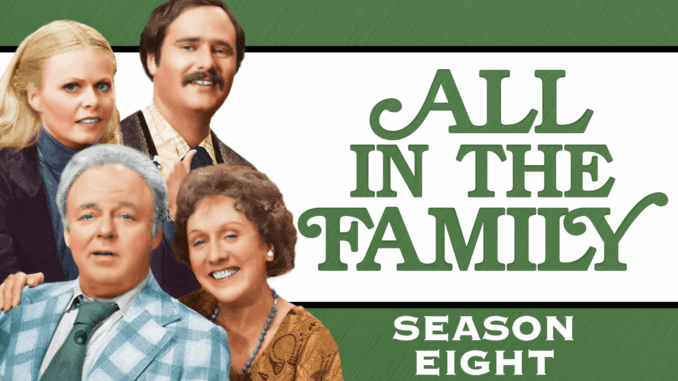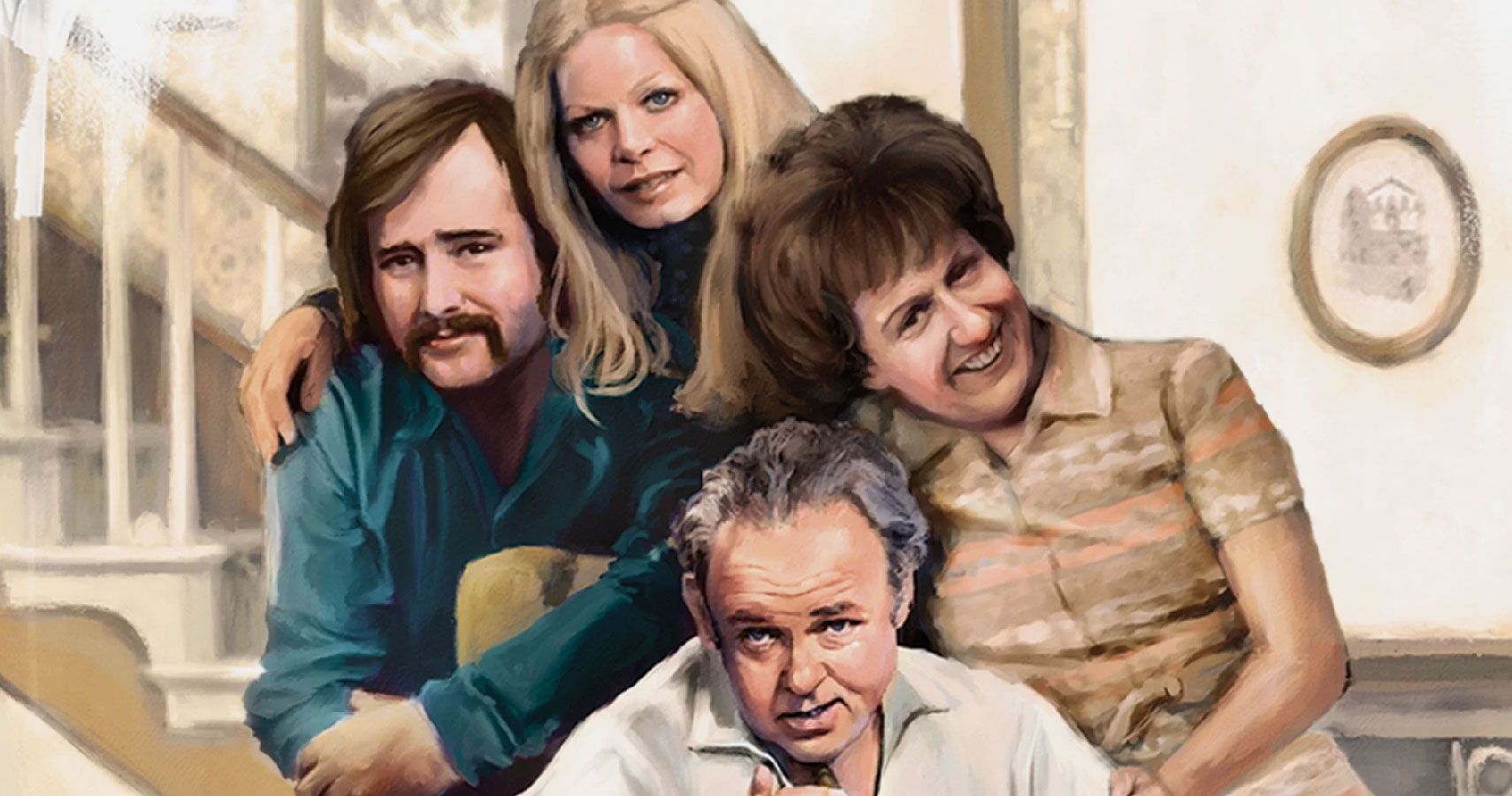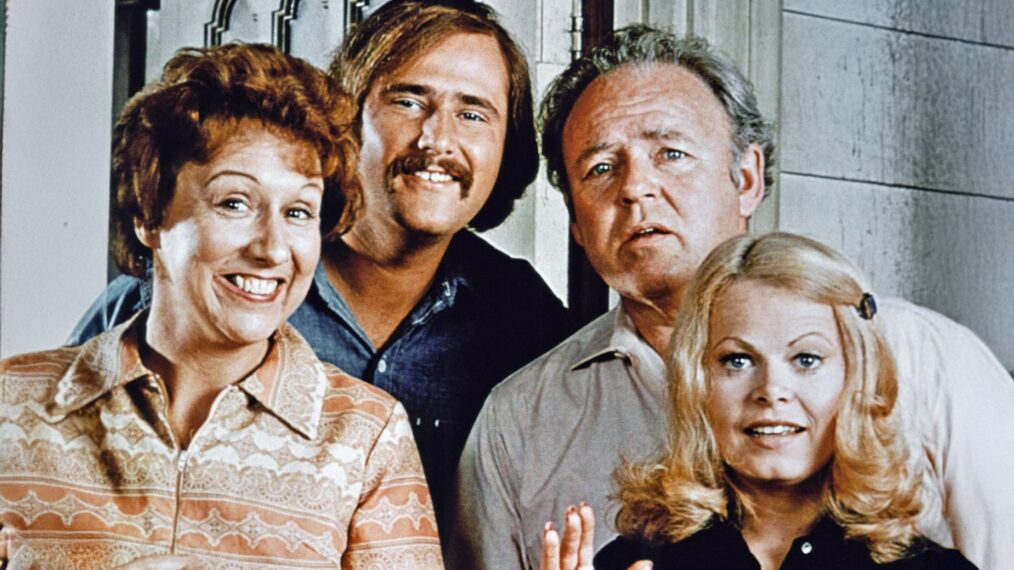
Few shows in TV history have left an impact as seismic as All in the Family. First airing in 1971, this Norman Lear classic didn’t just entertain—it provoked, challenged, and redefined what a sitcom could be. More than five decades later, All in the Family remains one of the most talked-about series in American television history, not just for its humor, but for its fearless social commentary, unforgettable characters, and the sprawling legacy it left behind.
Archie Bunker: The Flawed Everyman Who Defined a Generation
At the very core of All in the Family stood Archie Bunker—a gruff, blue-collar worker from Queens whose living room became the front line of America’s cultural battles. Brought to life with extraordinary nuance by Carroll O’Connor, Archie was anything but your average sitcom patriarch. Loud, combative, and fiercely set in his ways, he embodied the conservative everyman of the era—complete with all the prejudices, fears, and frustrations that came with it. But beneath that tough, bigoted exterior was a deeply human character whose complexity challenged audiences in ways few sitcoms ever dared.
Archie wasn’t designed to be likable—he was designed to be real. He could make you laugh out loud with a perfectly timed insult, only to make you wince seconds later with a painfully outdated opinion. Yet it was precisely this duality that made him such a groundbreaking figure in television. He wasn’t a caricature; he was a reflection—one that forced viewers to confront the uneasy truths about racism, sexism, religion, and political division in 1970s America.
Nowhere was this tension more palpable than in his explosive interactions with his son-in-law, Mike “Meathead” Stivic, played by Rob Reiner. A passionate liberal and outspoken intellectual, Mike clashed with Archie at nearly every turn. Their dinner table debates—sharp, uncomfortable, and often laugh-out-loud funny—weren’t just sitcom banter. They mirrored the very real generational and ideological divides unfolding in living rooms across the country.
Through Archie and Mike, All in the Family captured the essence of a society in flux. These weren’t conversations played for cheap laughs—they were reflections of a nation grappling with its identity. The result was a show that didn’t shy away from discomfort but leaned into it, using comedy as a scalpel to dissect deep-seated cultural tensions.
And that’s what made Archie Bunker so unforgettable. He wasn’t just a character on a television screen—he was a symbol of a changing America, messy and maddening, but impossible to ignore.
Edith Bunker: More Than Just a “Dingbat”

Opposite Archie was Edith Bunker, portrayed by Jean Stapleton with heartbreaking warmth and quiet strength. While often called “dingbat” by her husband, Edith wasn’t dumb—she was kind, empathetic, and surprisingly wise. Through her character, the show revealed the emotional costs of being married to someone like Archie, but it also showcased the power of compassion and emotional intelligence.
Stapleton’s performance earned her three Emmy Awards, and Edith’s influence remains a testament to how subtle, thoughtful acting can balance even the most provocative comedy.
Groundbreaking Themes That Resonate Today
All in the Family wasn’t afraid to dive into taboo territory. The series tackled topics most shows at the time wouldn’t touch: racism, homosexuality, women’s rights, the Vietnam War, menopause, rape, and gun violence. These weren’t “very special episodes”—they were baked into the fabric of the show. That boldness helped make All in the Family a mirror of its time and a conversation starter in households across America.
And the gamble paid off in ways that few shows could ever dream of. All in the Family dominated television screens throughout the 1970s, spending an astonishing five consecutive seasons as the number one show in the Nielsen ratings—a feat rarely matched in TV history. It didn’t just attract viewers; it captivated a nation, turning Sunday nights into appointment television. The series collected a slew of accolades along the way, including multiple Emmy Awards and Golden Globes, recognizing both its fearless writing and the unforgettable performances at its core.
But its true legacy goes far beyond trophies and ratings. All in the Family redefined what a sitcom could be. It opened the door for socially conscious comedy—sitcoms that weren’t afraid to make audiences laugh while also making them think. Without All in the Family, there might never have been The Golden Girls tackling aging and feminism, or Roseanne exploring blue-collar family life with brutal honesty, or even Modern Family redefining what a household could look like in the 21st century. The echoes of Archie Bunker’s living room still ripple through today’s most beloved shows.
In short, All in the Family didn’t just reflect the times—it changed them.
A Sitcom Universe Like No Other
Though All in the Family remains the crown jewel, it also launched one of the most impressive spin-off legacies in television history. These include:
-
Maude (1972–1978), starring Bea Arthur as Edith’s outspoken cousin.
-
Good Times (1974–1979), a spin-off of Maude focusing on a working-class Black family in Chicago.
-
The Jeffersons (1975–1985), following the Bunkers’ Black neighbors who “moved on up” to the East Side.
-
Archie Bunker’s Place (1979–1983), a continuation of Archie’s life after Edith.
-
Gloria (1982–1983), centered on Archie’s daughter after her divorce.
-
Checking In (1981), focusing on Florence from The Jeffersons.
-
704 Hauser (1994), bringing the political tensions full circle with a new family in the Bunkers’ old home.
Yet despite this expansive universe, it’s All in the Family that continues to draw new viewers and critical acclaim.
Why ‘All in the Family’ Still Connects in 2025

What makes All in the Family so enduring is its honesty. In an era where many shows avoid controversy, it dove straight into it—with humor, heart, and an unwavering belief that sitcoms could be more than punchlines.
Today, streaming platforms have introduced Archie and Edith to a new generation. Young viewers discovering the series are often shocked by how timely the themes still feel—from political polarization to generational clashes and culture wars.
Its lasting legacy also lives on through reboots and tributes. ABC’s live reenactments of classic episodes in recent years have drawn millions of viewers, proving that Archie’s chair—and the debates around it—still hold a powerful place in the American imagination.
Final Thoughts: The Sitcom That Dared to Say What Others Wouldn’t
All in the Family didn’t just make people laugh—it made them think, squirm, argue, and even cry. In doing so, it redefined what a sitcom could be. Its blend of controversy and compassion, rage and reason, still feels unmatched.
In the world of television history, All in the Family stands as a fearless original—a sitcom that didn’t play it safe, and in doing so, changed the game forever.